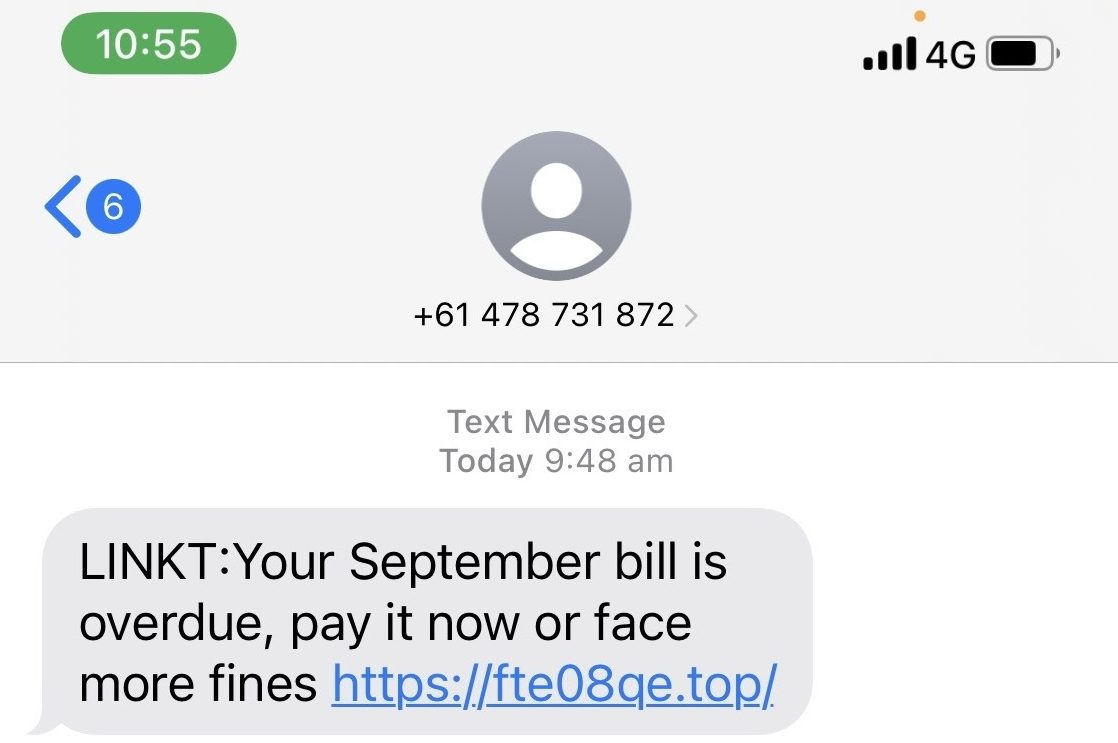
This Cyber Security Awareness Month, Canberrans are being urged to take preventative steps against online threats. Photo: Michelle Kroll.
“Whenever someone I don’t know calls me, I’m worried it’s a scam.”
Sound familiar? After all, it could be someone with the wrong number or, the start of something more sinister – it can be really hard to tell.
The most recent report from the National Anti-Scam Centre (NASC) found Australians lost $2.03 billion in combined reported losses and made 494,732 reports to various bodies across 2024.
There is some good news: a 25.9 per cent drop in losses compared to the previous year and a 17.8 per cent decrease in reports compared to 601,803 in 2023.
“While we are cautiously optimistic … we note an increase in loss reports over the last months of 2024,” the NASC report states.
“Scammers are sophisticated and motivated criminals, and we can expect them to innovate even as we succeed in strengthening our defences.”
ACT Government statistics report that more than 7000 scams were reported to Scamwatch from within the ACT alone.
Territorians lost more than $9 million to scams and cyber criminals; the most common were investment and romance scams and threats.
The top contact methods included emails, text messages and calls.
So what can we do?
This year’s Cyber Security Awareness Month, with its theme Building our cyber safe culture, provides some answers.
Canberra IT service provider OPC Operations manager Peter Shobbrook said October is a timely reminder to put into practice simple cybersecurity steps that can protect us year-round.
Peter says the biggest myth around online safety is people assuming hackers and scammers aren’t interested in them – it can happen to us all.
“I get comments like ‘Why would they hack me or hack my small businesses when there’s other big businesses out there?’
“The answer is always, they’re not targeting you, but they cast a net, and they’ll try to get any kind of money, advantage, credentials or access from whoever falls in that.”
He said it can just take someone having a bad day for scammers to gain access.
“It could be someone’s really tired, they’re really flustered, or they’re just not educated about how to spot the signs,” he told Region.
“It’s better to be prepared and not be caught when you’re already stressed with 100,000 other things.”

Australians lost billions in combined losses from scams, according to the 2024 statistics. Photo: Screenshot.
This year’s Cyber Security Awareness Month we’re all being encouraged to take three small steps to keep ourselves safe: regularly install software updates to keep devices secure; use unique and strong passwords on every account; and set up multi-factor authentication for accounts.
Mr Shobbrook said software updates often come with software patches (meaning keeping devices up-to-date closes weak points hackers could exploit) and people should ensure these are installed as they arrive, while multi-factor authentication is a “necessary inconvenience” that can stop a cyber attack.
Meanwhile, having unique passwords helps to stop someone from taking advantage of multiple accounts that share login information.
It’s also a red flag when something or someone urges you to pay immediately.
He said it could come as a request to urgently pay this month’s water bill – it might be someone nefarious wanting you to hand over money without thinking.
Minister for the Public Service Rachel Stephen-Smith said it was important for individuals, workplaces and governments to remain vigilant while online.
“Cyber Security Awareness Month highlights the importance of protecting yourself online and securing devices and accounts from cyber threats,” she said.
“This year’s theme of ‘building our cyber safe culture’ is a reminder that cyber security should be a daily habit and small actions, like creating strong passphrases, can make a big difference.”
Visit Scamwatch for more information or to report a scam.
Find more details about Cyber Security Awareness Month online.
Original Article published by Claire Sams on Region Canberra.








